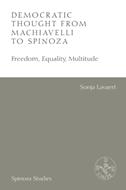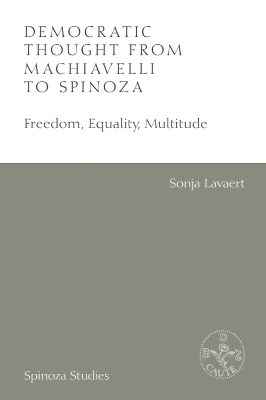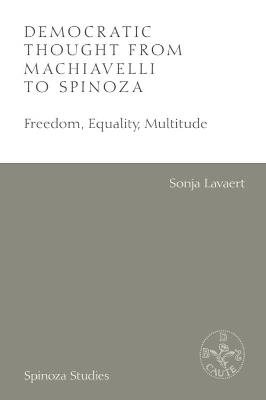Democratic Thought from Machiavelli to Spinoza: Freedom, Equality, Multitude
In the latter half of the seventeenth century, Spinoza effected a reversal in the relationship between philosophy, politics, and religion, thereby laying the foundation for modern democracy. This shift, and his plea for philosophical critique, did not pass unchallenged. The idea that there is no equality without freedom, and no freedom without equality, was maligned by those who insisted it would lead to rebellion and anarchy. Still, Spinoza was no solitary figure, but formed part of a larger European movement. Inspired by several anonymous clandestine treatises, the republican writings of his contemporary De la Court, the democratic ideas of his former teacher Van den Enden, and the subversive criticism of his friend Koerbagh, Spinoza continued the trajectory established by Machiavelli. The resistance which his work encountered played a role in the radicalization of his ideas, the return to Machiavelli's revolutionary principles, and the recognition of the multitude's crucial role.
-
Autore:
-
Traduttore:
-
Editore:
-
Collana:Spinoza Studies
-
Anno:2024
-
Rilegatura:Hardback
Le schede prodotto sono aggiornate in conformità al Regolamento UE 988/2023. Laddove ci fossero taluni dati non disponibili per ragioni indipendenti da Feltrinelli, vi informiamo che stiamo compiendo ogni ragionevole sforzo per inserirli. Vi invitiamo a controllare periodicamente il sito www.lafeltrinelli.it per eventuali novità e aggiornamenti.
Per le vendite di prodotti da terze parti, ciascun venditore si assume la piena e diretta responsabilità per la commercializzazione del prodotto e per la sua conformità al Regolamento UE 988/2023, nonché alle normative nazionali ed europee vigenti.
Per informazioni sulla sicurezza dei prodotti, contattare productsafety@feltrinelli.it



